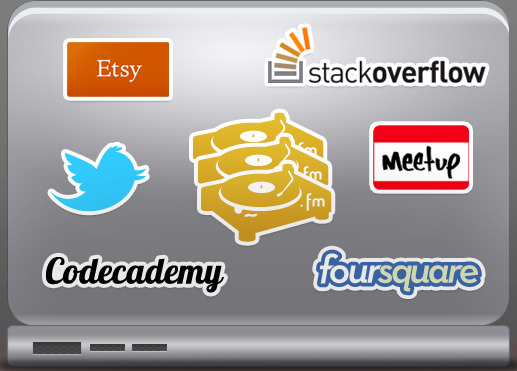I am developing a standard format for these MBA Mondays series. I do five or six posts on a topic and then I solicit four or five guest posts to wrap it up. Today we begin the guest posts on the Board Of Directors series we've been doing for the past six weeks.
Hopefully everyone who has been following this series on Boards understands the point that you want independent directors on your Board and that the best choice for independent directors are fellow entrepreneur CEOs who have been through what you are going through.
One of the most sought after independent directors in the world of internet startups is Scott Kurnit who has started a couple internet companies and has sat on eight boards including several public boards. If you are not familiar with Scott, here is an interview he did with me in late 2010 at the Paley Center.
I asked Scott to lead us off in the guest post section because I know that he has some strong opinions about Boards and Board composition. And he shares some of them with us in the guest post below.
——————————————————–
Fred has done his usual fabulous job outlining the critical issues with Boards. Today I’m going to address two concepts that surprise people every time, end up generating lots of head nods, then usually don’t happen. These suggestions clearly fit into the art of the board more than the science. And it’s the unwillingness to depart from traditional norms by those around the table that stop them from happening.
1. Your best friend should be on the Board, and
2. No one who works in the company other than the CEO should be on the Board.
Why would you take a valuable Board seat for your best friend? Doesn’t every seat need to be occupied by people with industry expertise, financial acumen or years of board experience? That’s logical, but what about having someone who you trust with your life? Someone you’ll truly believe when the Board is telling you that you’re not performing or that the financing you seek is wrong or that you’re spending too much or your request for stock options is too aggressive?
Ideally, your best friend has industry or financial or board expertise – but even if not, having someone who has your back… who tells you the unvarnished truth… that you believe in an instant… is in everyone’s interest. This seat is critical. Fill it.
As a repeat CEO and board member, I try to fill this role of CEO pal if a CEO doesn’t have one. I’m well aware of my fiduciary responsibilities to shareholders, but I try to think of the CEO first since if he performs, the company performs and changing out CEOs is a wrenching and often disastrous activity. A CEO should have someone he can tell anything. That makes a better company and a better outcome for shareholders.
Now, for my second point which will certainly raise the hackles of co-founders who are on the board, work their butts off and may have as much stock in the company as you do: The fact is, there’s only one CEO, one leader. And that’s why people who work for the CEO can’t also be the CEO’s boss. Yes, fundamentally, that’s what Boards are… the CEO’s boss.
Here’s the simple logic. The CEO can’t be in charge 29 days out of the month and then report to her subordinates on the 30th day. That screws up the crispness and clarity for the 29 days. A CEO should not be giving compensation or making non-objective decisions concerning subordinates, in order to make sure her own comp and Board decisions get approved on day 30. Ridiculous. You often end up with a horrible combination of dysfunctional board member and insubordinate… subordinate – all wrapped up in one person. You can’t be both a worker and a boss at the same time. Sorry, co-founders… you can observe at Board meetings… but you don’t get a vote. Period. And when the CEO tells you to leave the Board room… well, she’s the boss.
Since I have this awesome space courtesy of Fred, I could go into why Board members should have no ego, need to come to every board meeting in person, need to give performance reviews to CEOs, should only do email during Board meetings within a designated 5 minute block every hour and create an environment where everyone knows everything with total transparency. But, I won’t abuse the privilege of this space or your time.
Just get a pal on the board and keep your pals who work for you off the board. I promise, your company will be better and return higher rewards for all concerned.
Thanks Fred.










